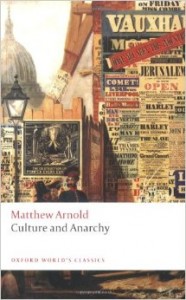 I have lately been thinking a great deal about culture in the era of multiculturalism, about what it means to be an American, or a Canadian, or a Brit. The recent attacks on Charlie Hebdo in Paris have brought the topic of national identity to the forefront of French discussion once more, as have the publications of Eric Zemmour’s Le Suicide Français and Michel Houellebecq’s Soumission, both of which envision a Muslim France, a France whose seismic shifts in demography result in a society radically different from the France of history. Nations are not the only producers of culture. Ethnic groups have a culture, as do religions; we also speak of the culture of businesses or sports franchises, attributing the success of, for example, Apple or Google, to their “culture of innovation.” The Pat Robertsons of the political right decry our permissive, homosexual, godless culture, just as the left’s bell hooks denounces (along with proper nouns, apparently) our culture of “white supremacist capitalist patriarchy.” I suspect that one of the surest symptoms of decline – in nations, businesses and religions – is the kind of creeping insecurity of purpose that now infects the West: who are we, what do we stand for and where are we going?
I have lately been thinking a great deal about culture in the era of multiculturalism, about what it means to be an American, or a Canadian, or a Brit. The recent attacks on Charlie Hebdo in Paris have brought the topic of national identity to the forefront of French discussion once more, as have the publications of Eric Zemmour’s Le Suicide Français and Michel Houellebecq’s Soumission, both of which envision a Muslim France, a France whose seismic shifts in demography result in a society radically different from the France of history. Nations are not the only producers of culture. Ethnic groups have a culture, as do religions; we also speak of the culture of businesses or sports franchises, attributing the success of, for example, Apple or Google, to their “culture of innovation.” The Pat Robertsons of the political right decry our permissive, homosexual, godless culture, just as the left’s bell hooks denounces (along with proper nouns, apparently) our culture of “white supremacist capitalist patriarchy.” I suspect that one of the surest symptoms of decline – in nations, businesses and religions – is the kind of creeping insecurity of purpose that now infects the West: who are we, what do we stand for and where are we going?
In his Culture And Anarchy, Matthew Arnold famously defines culture as the “pursuit of our total perfection by means of getting to know, on all the matters which most concern us, the best which has been thought and said,” the knowledge of which will free us from our “mechanical” habits; “this is the discipline by which alone man is enabled to rescue his life from thraldom to the passing moment and to his bodily senses, to ennoble it, and to make it eternal.” The study of history, literature and philosophy, of “the best that has been thought and said,” implant in us an idea of perfection: “Culture is then properly described not as having its origin in curiosity, but as having its origin in the love of perfection; it is a study of perfection.” The conception of the ideal and subsequent argument in favor of it become the moral foundation of society:
The moment this view of culture is seized, the moment it is regarded not solely as the endeavour to see things as they are, to draw towards a knowledge of the universal order which seems to be intended and aimed at in the world, and which it is a man’s happiness to go along with or his misery to go counter to, – to learn, in short, the will of God, – the moment, I say, culture is considered not merely as the endeavour to see and learn this, but as the endeavour, also, to make it prevail, the moral, social, and beneficent character of culture becomes manifest.
Arnold’s definition of “culture” is aspirational: it isn’t merely a way of describing the manners, mores and ideals of a people but a set of criteria by which to measure that people.
And one of the functions of this aspirational culture is a kind of mediation against liberalism, that characteristically British ideal of allowing the individual the largest possible scope, provided he doesn’t infringe on the liberty of others. Arnold views liberalism, taken to an extreme, as tending to produce anarchy, reducing society to a collection of individuals pursuing their own ends. To have a culture, to operate under a set of standards universally agreed upon, combats this tendency without undermining liberty.
It would not escape a modern reader that coming to an agreed upon standard is no mean feat, that bell hooks and Pat Robertson would conceive of “perfection” in very different, likely antithetical terms. But for Arnold these differences, fundamental though they may seem, are not arguments against the possibility of culture but the very stuff of culture. The debate, the dialectic, is the great prerequisite of culture, which is not won on easier terms.